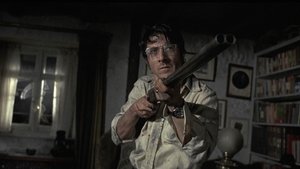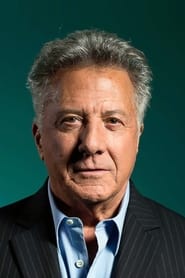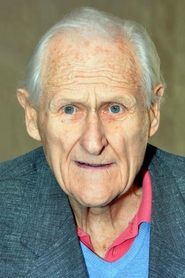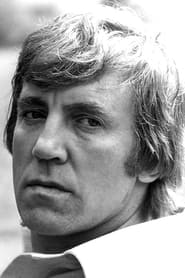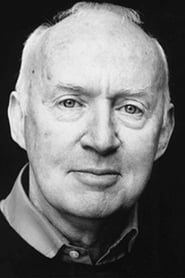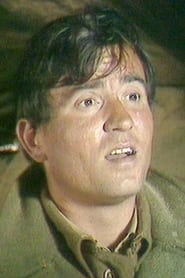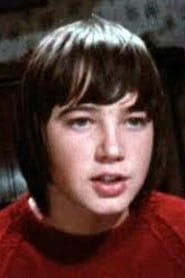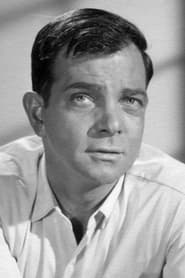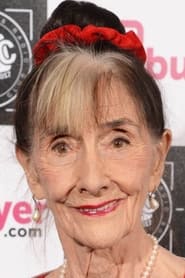Cast
View AllDustin Hoffman
as David Sumner
Susan George
as Amy
Peter Vaughan
as Tom Hedden
T. P. McKenna
as Maj. John Scott
Del Henney
as Charlie Venner
Jim Norton
as Chris Cawsey
Donald Webster
as Riddaway
Ken Hutchison
as Norman Scutt
Len Jones
as Bobby Hedden
Sally Thomsett
as Janice Hedden
Robert Keegan
as Harry Ware
Peter Arne
as John Niles
Cherina Schaer
as Louise Hood
Colin Welland
as Rev. Barney Hood
June Brown
as Mrs. Hebden (uncredited)
Crew
Director
- Sam Peckinpah
Producer
- Daniel Melnick
Reviews
John Chard
This is where I live. This is me. I will not allow violence against this house.
Straw Dogs is directed by Sam Peknipah and Peckinpah co-adapts to screen play with David Zelag Goodman from the novel "The Siege of Trencher's Farm" written by Gordon Williams. It stars Dustin Hoffman, Susan George, Peter Vaughan, T.P. McKenna, Del Henney and Ken Hutchison. Music is by Jerry Fielding and cinematography by John Coquillon.
A young American maths teacher and his English wife move to the rural English village where she was raised and face increasingly vicious harassment from the locals...
One of Peckinpah's masterpieces (yes you can have more than one), Straw Dogs is an uncompromising dissection of violence, machismo and boundary pushing of the human condition. Controversy around the film reigned supreme upon release (and long into the dead part of the video nasty era 1980s), and in fact still today it is still pored over as an abject lesson in audience manipulation. For a s the power struggle between a husband and wife against their abusers reaches boiling point, ultra violence and sexual assault attacks the viewer's senses.
Peckinpah is in his pomp here, making us observers complicit in the ultimate cynical premise. It's not so much that violence begets violence, but that a mild mannered man has to resort to extreme violence - thus repelling his once firm code of morals - in order to defend what should in fact be his right. Hoffman is excellent, layering the character arc to perfection, while George as his wife is sexually suggestive, spiteful and positively superb in bringing to vivid life such a challenging characterisation.
As the director (see what he could do when not pestered by studio execs) pulls the audience's strings, and Fielding lays a haunting musical score over proceedings (Oscar Nominated), we have been privy to one of the best and most caustic observations of violence put on the screen. 10/10
Feb 16, 2020
Wuchak
**_How far can a civilized man be pushed?_**
A well-to-do couple from America (Dustin Hoffman and Susan George) move back to the wife's hometown near Land’s End in western Cornwall, England, and settle into the vacant homestead. They enlist some roofers whom she knows from her school days, one of them being a former boyfriend (Del Henney). Rivalry is in the air as the laborers try to emasculate Amy’s brainy husband and she questions his manhood. Havoc ensues.
Based on Gordon M. Williams’s novel and helmed by Peckinpah, "Straw Dogs" (1971) is a psychological thriller and so there's a lot of drama and subtle suspense build-up; things don't blow-up until the final act, so to speak. Consequently, anyone looking for mindless action should stay away. There are bits reminiscent of "Of Mice and Men," like the mentally challenged guy (David Warner) who doesn't know his own strength.
The conflict here is basically brawn vs. brain or Lynyrd Skynyrd vs. Bach. David (Hoffman) is a meek, civilized man of below average stature (almost 5’6”) with an intellectual occupation who is forced to shed all his cultured conditioning and revert back to the barbarism of his ancestors.
The story spurs some questions: Why does a rape-victim keep silent? Why is the local teen hottie interested in the mentally-challenged hunk? But a little reflection will answer these and other questions. I like it when films don't spell everything out and make you think. Certain added bits are interesting, like the subtle rivalry between gang members Charlie (Henney) and Norman (Ken Hutchison).
The flick is sophisticated and sneers at binary good/bad characterizations, rubbing the viewer’s face in humanity’s animalistic (or fallen) nature, which lies just beneath the veneer of civilized proprieties. There’s an effective 2011 remake, which switches the setting to the modern day of the Deep South, America. Anyone who appreciates Rural Gothic or Southern Gothic will likely appreciate either. I should add that there's an unpleasant rape sequence à la “The Wild Angels” and “Last Summer,” not to mention the mayhem of the climax, but it's mostly an intelligent drama that slowly builds tension, obviously influenced by “The Shuttered Room” from four years prior.
It runs 1 hour, 58 minutes, and was shot in southwest England at St Buryan, near Penzance, with studio stuff done at Twickenham Studios in London.
GRADE: B
Oct 28, 2024
Thematic Analysis
As a dramatic work, Straw Dogs examines complex human relationships and emotional struggles against the backdrop of a period setting that reflects societal issues of its time. The character development particularly stands out, offering viewers a chance to reflect on their own life journeys.
Director Sam Peckinpah brings their distinctive visual style to this film, continuing their exploration of themes seen in their previous works while adding new elements. Their approach to character development and emotional depth creates a viewing experience that rewards close attention.
Released in 1971, the film exists within a cultural context that now offers viewers historical perspective on the social issues of that era. Its critical acclaim reflects its artistic achievements and its place in cinema history.
Did You Know?
- The production of Straw Dogs took approximately 4 months from pre-production to final cut.
- With a budget of $2.2 million, the film proved to be a financial success, earning back its investment and more.
- The final cut of the film runs for 116 minutes, though the director's initial assembly was reportedly 152 minutes long.
- The musical score contains over 69 unique compositions.
- The costume department created over 112 unique costume pieces for the production.
- The film contains approximately 2495 individual shots.
Historical Context
- In 1971, when this film was released:
- Disco music dominated popular culture.
- The Watergate scandal changed public perception of political institutions.
- The film industry was dominated by major studios, with independent cinema still in its early development.
How This Film Stands Out
While Straw Dogs shares thematic elements with other films in its genre, it distinguishes itself through its unique approach to storytelling, visual style, and character development.
Unlike When the Bullet Hits the Bone, which focuses more on action than character development, Straw Dogs offers a fresh perspective through its innovative visual language and narrative structure.
While films like The Hustler and The Man Who Fell to Earth explore similar territory, Straw Dogs stands apart through its deeper exploration of its central themes and more complex characterization.
This film's unique contribution to cinema lies in its thoughtful balance of entertainment value and thematic depth, making it a valuable addition to its genre.
Details
- Release Date: November 25, 1971
- Runtime: 1h 56m
- Budget: $2,200,000
- Revenue: $3,251,794
